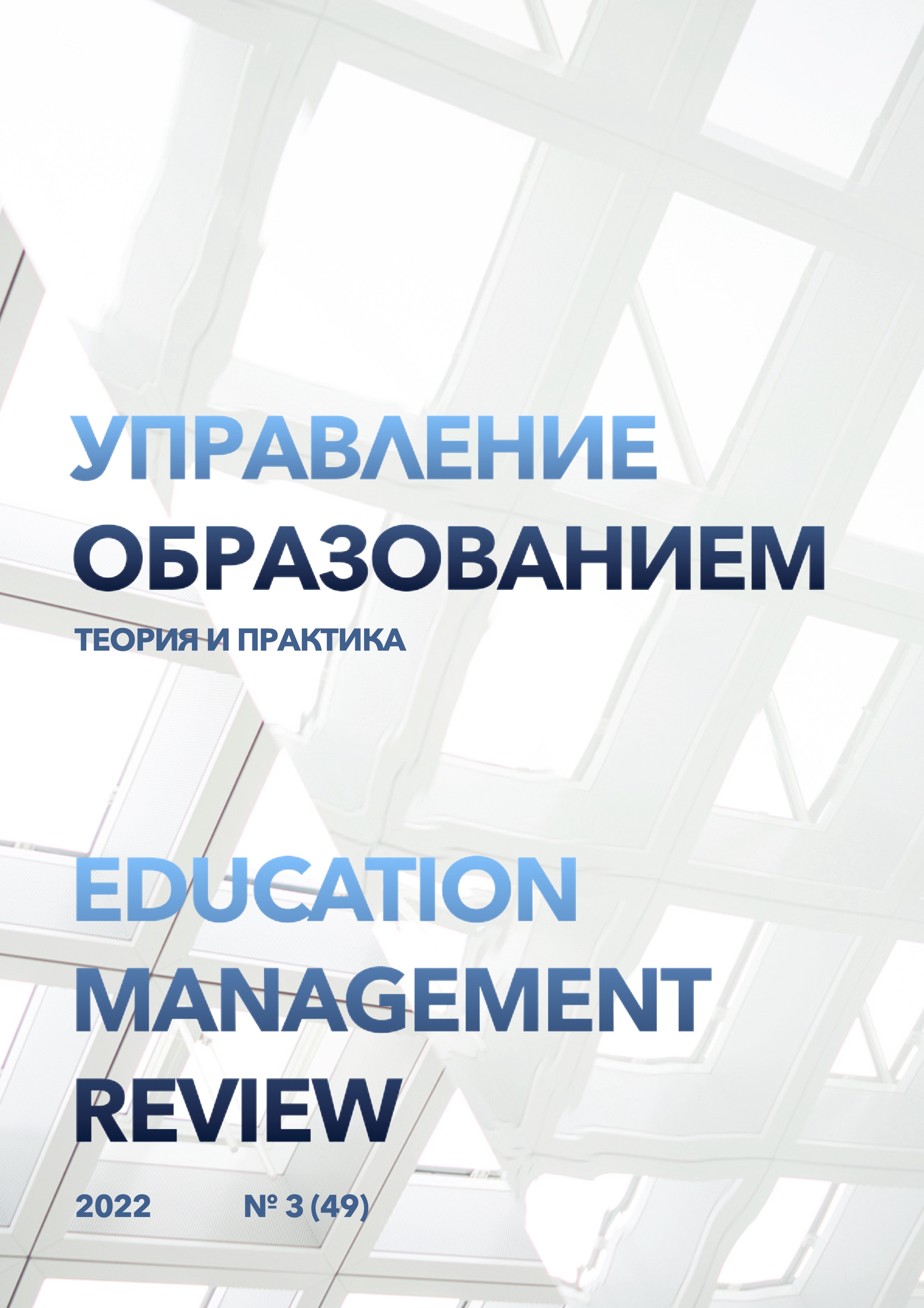Analysis of international approaches to assessing the functional literacy of students
DOI:
https://doi.org/10.25726/r2780-0711-5020-iKeywords:
functional literacy, analysis, PISA, TIMSS, general education, international programs, trainingAbstract
The formation of the information society involves a fundamental transformation of the education system. Mass education should form updated competencies, which include not only such qualities as mobility and creativity, but also modern communication skills, skills to work with large amounts of information, assessment and planning actions. This exacerbates the issue of the quality of education. In Russia, the problem of improving the quality of education has been repeatedly raised in scientific publications and program documents. One of the tasks formulated in the 2020 Federal Report on the State and Prospects of Education in Russia was to ensure the integration of Russian education into the world space. However, the issue of the quality of education in the course of the implementation of this direction remains relevant, including at the level of the introduction of modernized learning technologies. The results of the international study of the quality of education PISA (Programme for International Student Assessme) confirmed this conclusion. Now in Russia, the results and analysis of the materials of this international survey attract the close attention of scientists and specialists, as they contain extensive information potential for formulating important proposals. However, an in-depth analysis of the results of PISA, which would have political implications for the development of education, has yet to be carried out. The purpose of the article is to assess the educational achievements of students based on the results of participation in the international program PISA-2020 and to determine the directions and institutional mechanisms for reforming the Russian school, which will help to realize the world priorities in the educational sphere.
References
Азимов Э.Г, Щукин А.Н. Новый словарь методических терминов и понятий (теория и практика обучения языкам). Москва, 2009.
Виноградова Н.Ф., Кочурова Е.Э., Кузнецова М.И. и др. Функциональная грамотность младшего школьника: книга для учителя. Москва, 2018.
Ковалева Г.С. На пути решения стратегических задач // Вестник образования России. 2019. № 14. С. 49-52.
Ковалева Г.С. Что необходимо знать каждому учителю о функциональной грамотности // Вестник образования России. 2019. №16. С. 32-36.
Кузнецова М.И. Современная система контроля и оценки образовательных достижений младших школьников: пособие для учителя. Москва, 2014.
О национальных целях и стратегических задачах развития Российской Федерации на период до 2024 года: Указ Президента РФ от 07.05.2018 № 204 (ред. от 19.07.2018). https://base.garant.ru/71937200
Алексашина И.Ю. Формирование и оценка функциональной грамотности учащихся: Учебно-методическое пособие / И.Ю. Алексашина, О.А. Абдулаева, Ю.П. Киселев; науч. ред. И.Ю. Алексашина. СПб.: КАРО, 2019. 160 с. (Петербургский вектор введения ФГОС ООО).
Басюк В.С., Ковалева Г.С. Инновационный проект Министерства просвещения «Мониторинг формирования функциональной грамотности»: основные направления и первые результаты // Отечественная и зарубежная педагогика. 2019. №4 (61). С. 13-33.
Действующая редакция государственной программы «Развитие образования» утверждена Постановлением Правительства от 26 декабря 2017 года №1642 // Официальный сайт Правительства РФ. http://government.ru/rugovclassifier/860/events/
Егорычев А.М. Традиции и новации в системе современного образования // Вестник «Орленку». 2014. №1. С. 14-19.
Жмуров Д.В. Национальная педагогическая энциклопедия: открытый образовательный ресурс. https://didacts.ru/termin/kompetentnost.html
Инновационные технологии как фактор реализации компетентностного подхода в образовании: монография / Н.В. Буренкова, Т.В. Данилова, М.С. Сидорина, А.П. Тонких и др. Саратов: Ай Пи Ар Медиа, 2019. 220 с.
Исследование PISA-2018. https://fioco.ru/pisa-2018
Компетенции "4К": формирование и оценка на уроке: Практические рекомендации / авт. - сост. М.А. Пинская, А.М. Михайлова. М.: Российский учебник, 2019. 76 c.
Основания дидактических решений, направленных на формирование функциональной грамотности младших школьников: коллект. моногр. / К.Э. Безукладников, И.Н. Власова, Д.Л. Готлиб [и др.]; науч. ред. К.Э. Безукладников, В.А. Захарова; под общ. ред. М.А. Худяковой; Перм. гос. гуманит.-
пед. ун-т. Пермь, 2021. 252 с. (Серия: Условия формирования функциональной грамотности младших школьников)
Сравнительный анализ подходов, программ и методик формирования функциональной грамотности младших школьников: коллект. Моногр. / К.Э. Безукладников, И.Н. Власова, Д.Л. Готлиб [и др.]; науч. ред. К.Э. Безукладников, В.А. Захарова; под общ. ред. М.А. Худяковой; Перм. гос. гуманит.- пед. ун-т. Пермь, 2021. 170 с. (Серия: Условия формирования функциональной грамотности младших школьников)
Худякова М.А., Власова И.Н., Селькина Л.В., Худякова А.В., Шустова С.В. (2021) Основы формирования функциональной грамотности школьников. Revista Tempos E Espaços Em Educação , 14 (33), e16757. DOI: https://doi.org/10.20952/revtee.v14i33.16757
Grizioti, Marianthi, Kynigos, Chronis. (2020). "Computer-Based Learning, Computational Thinking, and Constructionist Approaches", In: Arthur Tatnall (Eds.), Encyclopedia of Education and Information Technologies, [https://doi.org/10.1007/978-3-319-60013-0_75-1
Hrybiuk, O. (2019), "Problems of expert evaluation in terms of the use of variative models of a computer-oriented learning environment of mathematical and natural science disciplines in schools", Zeszyty Naukowe Politechniki Poznanskiej. Organizacja i Zarz^dzanie, https://doi.org/ 10.21008/j.0239-9415.2019.079.07
Platov, A.V., Zikirova, S.S. and Podsevalova, E. (2019), "Gaps in educational programs in the context of global digitalization", Proceedings of the International Scientific and Practical Conference on Digital Economy (ISCDE 2019). https://doi.org/10.2991/iscde-19.2019.141
Robert, I., (2018), "Didactic-technological paradigms in informatization of education", SHS Web of Conferences, 55. https://doi.org/10.1051/shsconf/20185503014




